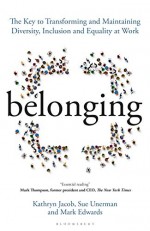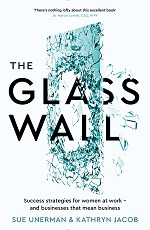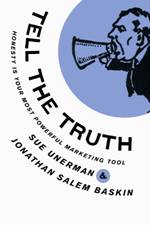Oh yes it is.
It’s maybe not generally known that the original folk tales on which one of the greatest hits of panto is loosely based were really quite dark.
The Grimm Brothers telling of Cinderella differs from the panto and Disney version in several respects. For instance Cinderella’s ball gown is not the gift of a fairy godmother but of a tree growing on her mother’s grave that she has watered with her tears. The step sisters end up getting their eyes pecked out. And the glass slipper episode has a darker turn too.
You’ll remember from childhood the story runs that the only way that the clearly rather unobservant Prince Charming can identify Cinderella after the ball is by searching the kingdom for a woman whose tiny foot fits the glass slipper left on the stairs of the palace. The so called “ugly sisters” can apparently fool the prince into thinking that they are the woman he intends to make his bride apart from the fact that they can’t squeeze their foot into the slipper.
In the original version they do indeed get the slipper on. The evil stepmother ensures that they do by cutting off a toe or two. The prince only clocks that this is fake because of the blood, the blood that spills everywhere.
Uncomfortable stuff.
As uncomfortable as every day can be for people who work in an environment where they need to cut off aspects of their personalities in order to fit in.
The Glass Wall holds back women from the careers they deserve in the workplace.
There is another glass metaphor, the Glass Slipper problem, which afflicts everyone who doesn’t fit the culture and expectations of their chosen career. There are many unspoken expectations wrapped up in the job you take, fuelled by years of cultural imagery. For example an investigative journalist is expected to be hungry, edgy, a bit tired looking and fearless. A chef is meant to be sweary and aggressive.
If you’re a comfortable well rested journalist, does that make you less good at chasing down a story?
If you’re efficient and relaxed are you a worse chef?
If you don’t participate in media’s drinking culture are you less likely to progress?
A professor at the University of Colorado, Karen Lee Ashcraft, wrote a paper identifying this issue. Ashcraft writes that some occupations have come to be “naturally possessed” of features that fit certain people much more than others. If you have ambitions to progress within an organisation that is characterised with attributes that don’t come naturally to you, then you may feel under huge pressure to adopt them, even if it means hiding your real identity day in and day out.
This can put an enormous strain on people and the effort it takes is not only exhausting but of course therefore detracts from the energy that would otherwise be available for doing good work.
Sometimes the attributes are sexual orientation or skin colour. Sometimes it’s more subtle. Do you ski? If you do is it at the “right resort”? If not, in some companies, you might as well have not bothered.
Squeezing your foot into a Glass slipper that doesn’t fit is always painful. Organisations that go along with this are missing out on the benefits of diversity and wasting their teams’ energies on a fruitless exercised of conformity.
For a truly happy ending, let Cinderella and her sisters, and the dame and Buttons, Gus Gus and Jaq, not to mention Aladdin, Dick and his cat all go to the corporate ball.





Getting a competitive edge from Artificial Intelligence may require restructure
Thursday, December 14th, 201723% say that they’ve currently incorporated it in their processes or service offerings today.
These stats come from Diane Black, Director at E&Y, speaking at Datatech’s conference last month.
Two points arise from this. First that the potential of AI is being thought about in most businesses, (if it isn’t in yours then you need to think hard). Second that if your business hasn’t incorporated AI, despite your strategies, you’re not alone.
It is clear from the other examples at the conference that there’s plenty of ways in which AI already is transformational. Customer interaction with their high street banks has changed enormously for instance in the last 5 years as AI enables better fraud detection and saves time. AI beats humans in gaming; facial recognition; natural language skills; healthcare diagnosis; predicting behaviour and even emotional intelligence. Yes, AI is better than people in emotional intelligence too, at least in some aspects of what’s included in EI anyway, for example AI is better at spotting a lie than a person is.
So AI is still developing, but isn’t transforming every business as much as it could.
A bit like electricity. Up until about a hundred years ago, the new-ish technology of electricity failed to make much headway in business. The dynamo, or electricity generator, had been around since the 1830s. But until 1910 most entrepreneurs were still using steam to power their factories. Those innovators who did install electric motors were disappointed with the cost savings and efficiencies. According to Tim Harford the reason for this was that most of them were simply replacing the steam engines with electric motors and using them in the same way. The simplest way to update the factory was of course to use electricity to power the same factory processes as the steam engines had done.
But electric motors were much more than this. They had potential to revolutionise the entire factory process. Electricity could be safely and simply delivered where it was needed in a way that steam power cannot – it has to be one central source of power – whereas electricity can be everywhere. So the old factories had to be arranged around the central power steam source, and were crowded, dark and dense. Steam set the pace, not the factory workers. Electricity is safer, cleaner, more flexible. To reap the benefits however the whole factory structure and the way everyone worked had to be ripped up.
Most factory owners were initially reluctant to change everything at scale and sacrifice the old ways of working to new-fangled methods. It wasn’t possible to run a small test and learn and reap the benefits gradually. For significant improvements, everything had to be re-imagined. Old rules abandoned. Hierarchies ripped up. Some old expertise became useless. New experts emerged.
Eventually, decades after the invention of the dynamo, this happened and factories hit new peaks of efficiency and productivity. An external event prompted this change, as travel from war-torn Europe meant more migrants and a radical shift in the availability of cheap labour and different kinds of expertise. This altered the dynamics of the economy in unexpected ways and re-distributed skills and ideas.
The story of the dynamo, which required entrepreneurs to change the entire existing system in their factories, their buildings, their logistic and their personnel, to reap the benefits raises these two points then about AI:
– UK businesses need wholesale change to benefit, rather than just plugging in to existing ways of working.
– Brexit may provide the external impetus to step-change or challenge the speed of adoption in the UK.
Working “BAU (business as usual)” with added AI won’t deliver real competitive edge. Radical re-thinking is necessary.
Posted in MediaComment | No Comments »